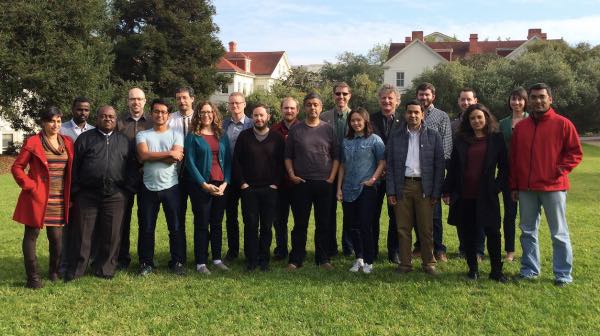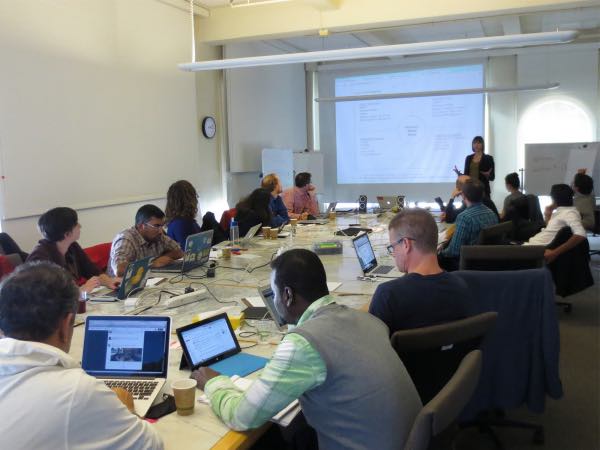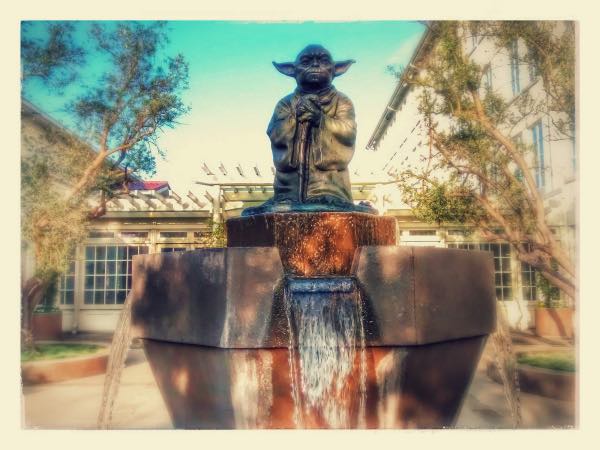Creative Commons celebrates Fair Use Week
jeudi 26 février 2015 à 16:04
“Niagara” by Jeff Koons, famously held to be a fair use of a photograph in Allure magazine. (Screenshot of image used under fair use.)
Today we commemorate Fair Use Week, a week-long celebration of the doctrines of fair use and fair dealing.
Creative Commons is proud of how its licenses respect fair use and other exceptions and limitations to copyright. CC licenses end where copyright ends, which means you don’t need to comply with a CC license if you don’t need permission under copyright. You will hear us repeat this fundamental design principle about our licenses often because it is important in practice, but even more so as policy. Anything that claims to grant “permission” to do things allowed under fair use is problematic because it promotes “permission culture” and increases FUD (fear, uncertainty and doubt) about fair use. This maxim goes for open licensing just as it does anything else, which is what makes the treatment of fair use in our licenses so important.
Even so, there remains some potential tension between open licensing and fair use. There are a few reasons for this. The first is that relying on fair use to include content in an otherwise openly-licensed work can make it difficult for people around the globe to reuse your work. While most countries have some form of fair-use-like rights, those rights are not harmonized internationally. That means it is possible that the portion of your work used under fair use would have to be carved out before it is reused in some jurisdictions. Proper marking of what content falls outside the scope of the license can help minimize this problem.
The other potential tension results from the gray area around where fair use begins and ends. Thanks in no small part to the work of Peter Jaszi and Patricia Aufderheide, the public has a much better idea of how fair use plays out in practice than it used to. But inevitably, some challenging fair use questions remain. When reusers are faced with those close cases, some opt to use CC-licensed work instead of relying on fair use of an all rights reserved work. By providing a licensed alternative, CC licenses provide a nice cushion for fair use in those situations. But in other contexts, reusers have to decide whether to rely on fair use when reusing a CC-licensed work. While it is common practice to give attribution when using something under fair use, complying with other CC license restrictions is often impossible when relying on fair use. This is exactly how it should be. As we know, using a work under fair use means the CC license is irrelevant and the license terms do not apply.
Creative Commons never discourages reusers from relying on fair use or other exceptions or limitations to copyright, even when that means not complying with a CC license. Respect for fair use was written into the code of our licenses from the start, and that has not changed. We recognize that fair use is a muscle, and it needs to be exercised. Now go workout.





